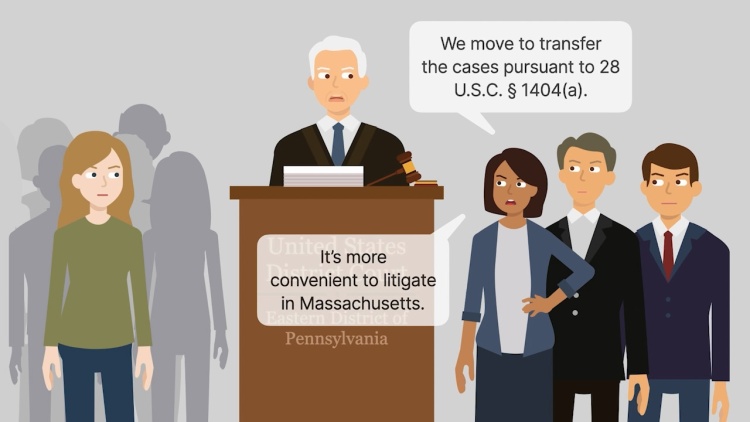Van Dusen v. Barrack
United States Supreme Court
376 U.S. 612 (1964)
- Written by Tammy Boggs, JD
Facts
In October 1960, a large commercial airplane that was scheduled to fly from Boston, Massachusetts, to Philadelphia, Pennsylvania, crashed in Boston, allegedly resulting from negligence and/or engine failure. More than 100 personal-injury and wrongful-death actions were filed against the airline, manufacturers, and others (collectively, the airline) (defendants) in the District of Massachusetts. Forty wrongful-death actions were filed by personal representatives of the victims (plaintiffs) in the Eastern District of Pennsylvania. In these latter 40 cases, the airline moved under 28 U.S.C. § 1404(a) to transfer the actions to the District of Massachusetts, where most of the witnesses resided and many actions were already pending. The Pennsylvania district court granted the motion to transfer although the victims’ representatives were not qualified to sue as representatives under Massachusetts law, meaning the actions could not have initially been brought by the representatives in Massachusetts. Further, the district court granted the transfer without deciding whether Pennsylvania or Massachusetts state law would apply to the victims’ substantive claims. Pennsylvania law allowed for more favorable victim compensation than Massachusetts in wrongful-death suits. The court of appeals reached a different decision than the district court, holding that a transfer could not be granted unless the victims’ representatives could have initially brought suit in Massachusetts. The Supreme Court granted certiorari.
Rule of Law
Issue
Holding and Reasoning (Goldberg, J.)
What to do next…
Here's why 907,000 law students have relied on our case briefs:
- Written by law professors and practitioners, not other law students. 47,100 briefs, keyed to 996 casebooks. Top-notch customer support.
- The right amount of information, includes the facts, issues, rule of law, holding and reasoning, and any concurrences and dissents.
- Access in your classes, works on your mobile and tablet. Massive library of related video lessons and high quality multiple-choice questions.
- Easy to use, uniform format for every case brief. Written in plain English, not in legalese. Our briefs summarize and simplify; they don’t just repeat the court’s language.





